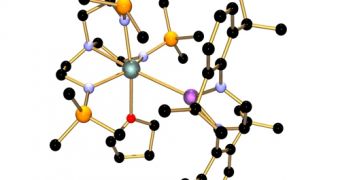One might not think that depleted Uranium is good for much, but some chemists disagree, saying that Uranium atoms can, in fact, be employed in the making of storage solutions with very large capacities.
The reason hard disk drives are still selling better than SSDs is because they are much less expensive and capacious.
Still, some analysts and consumers are definitely intent on believing that NAND Flash-based units will replace magnetic ones.
It appears that people now have a reason to reconsider their idea, provided anything comes of the latest discovery made by chemists from the University of Nottingham.
Basically, they discovered that depleted uranium can be used in the creation of HDDs with massive storage capacities.
Depleted uranium is a by-product of uranium enrichment and lacks the radioactive element needed in nuclear application.
With this new discovery, high-performance computing may receive a completely new level of storage density.
For those that want specifics, a molecule made of two uranium atoms maintains its magnetic properties at low temperatures.
“This work is exciting because it suggests a new way of generating SMM behavior and it shines a light on poorly understood uranium phenomena,” says chemist Steve Liddle of the University of Nottingham, who created the molecule.
“It could help point the way to making scientific advances with more technologically amenable metals such as the lanthanides. The challenge now is to see if we can build bigger clusters to improve the blocking temperatures and apply this more generally.”
More than one uranium atoms, in this case two, can be linked together by bridging toluene molecules. The resulting compound is dubbed single-molecule magnet and might lead to the making of HDDs capable of storing as much as a whole data center of today.
Of course, the research is just in its starting stages and, even if it does gain traction, it will take a while for any real world applications to appear.

 14 DAY TRIAL //
14 DAY TRIAL //